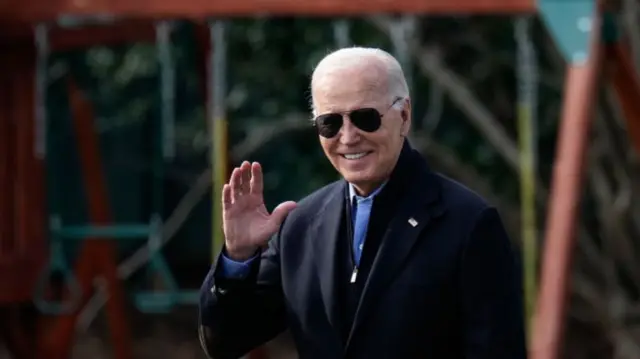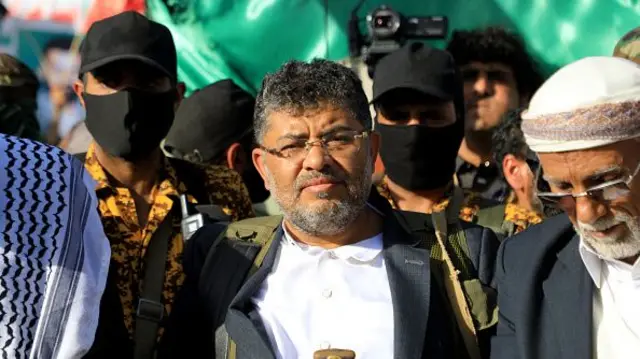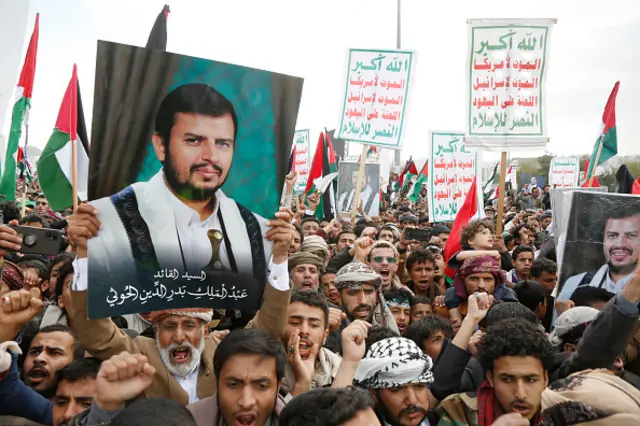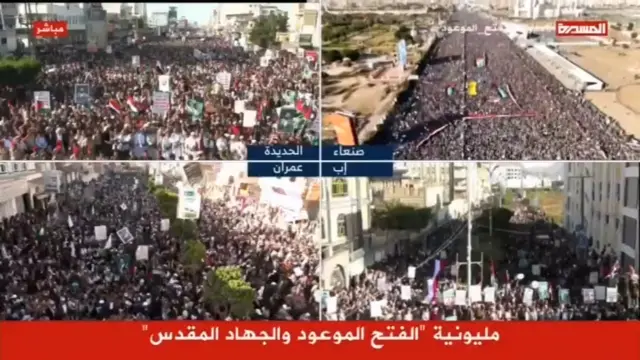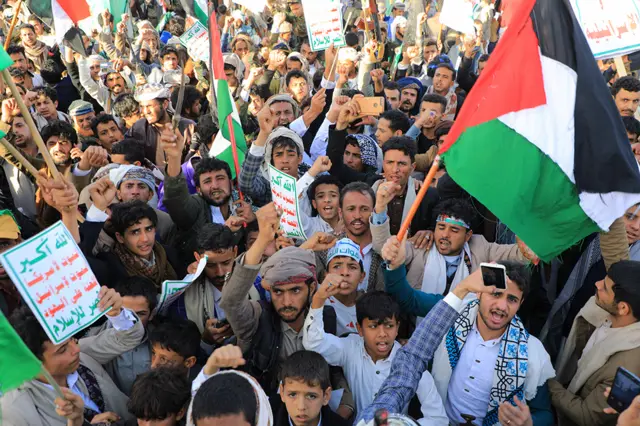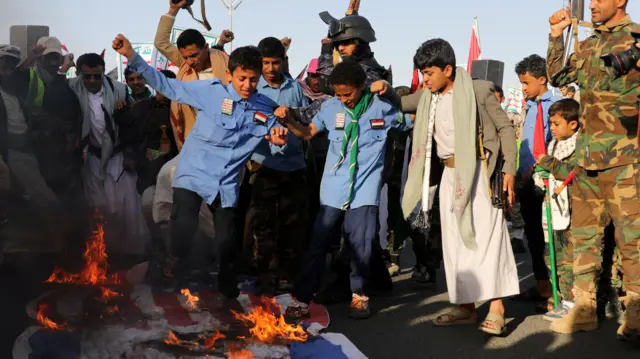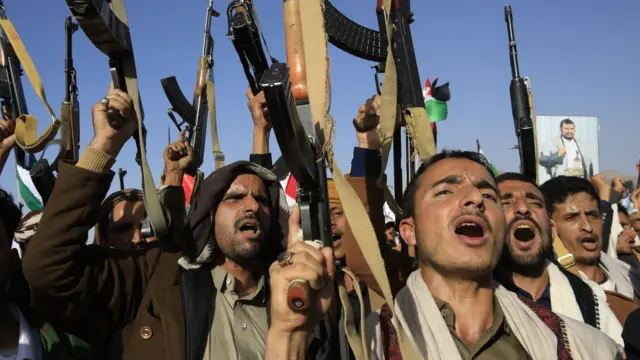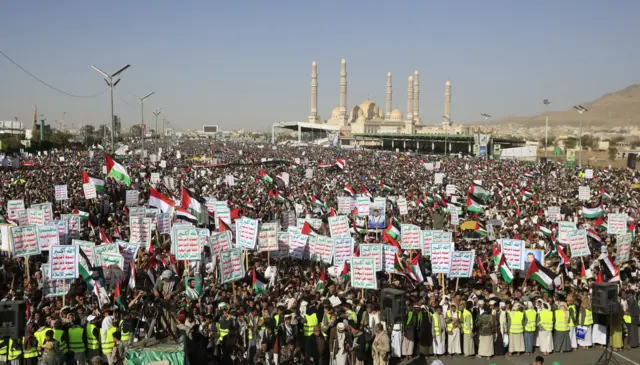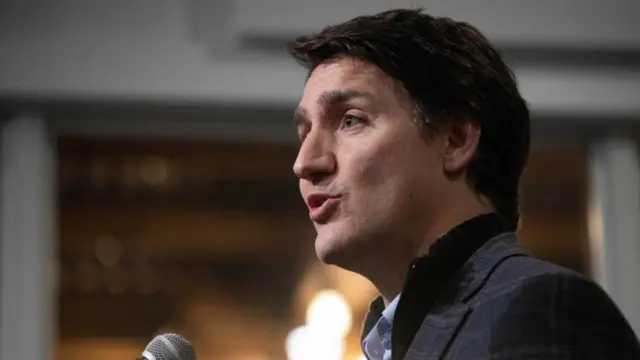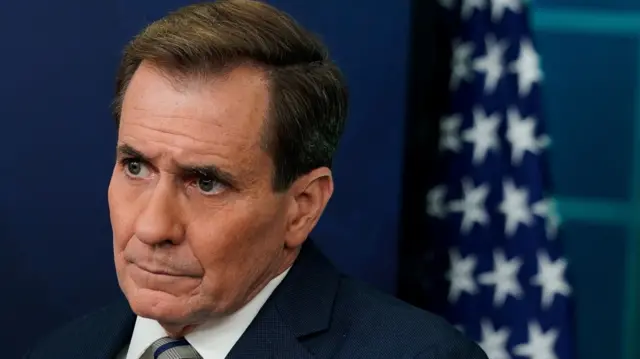Biden says no civilian casualties in strikespublished at 21:41 GMT 12 January 2024
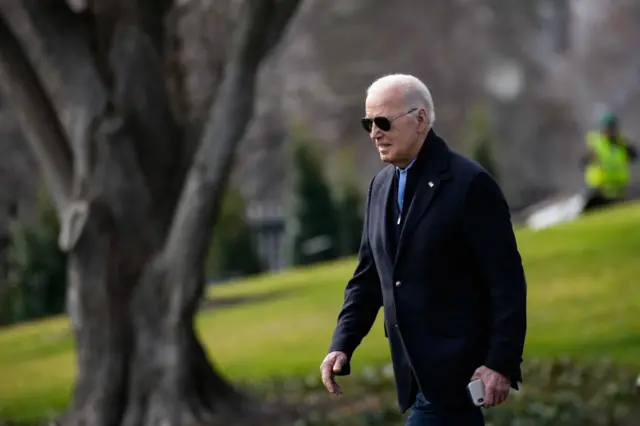 Image source, Getty Images
Image source, Getty ImagesTaking questions in Pennsylvania, Biden tells reporters the strikes in Yemen were a "success".
"I don't think there are any civilian casualties," he adds.
A military spokesperson for the Houthi rebels has told media at least five people were killed and six wounded in the strikes, without specifying whether they were civilians.
